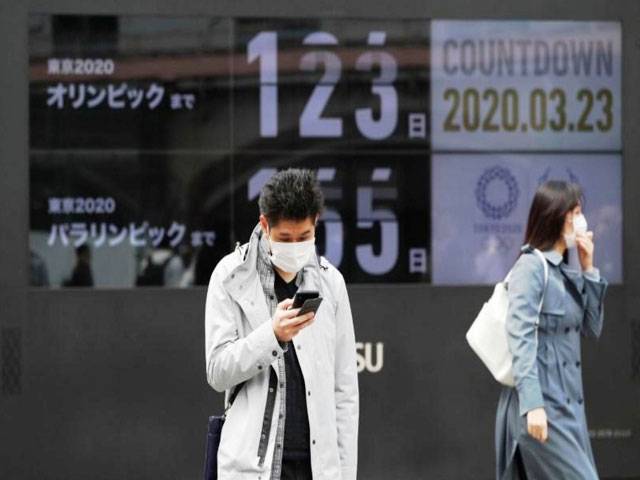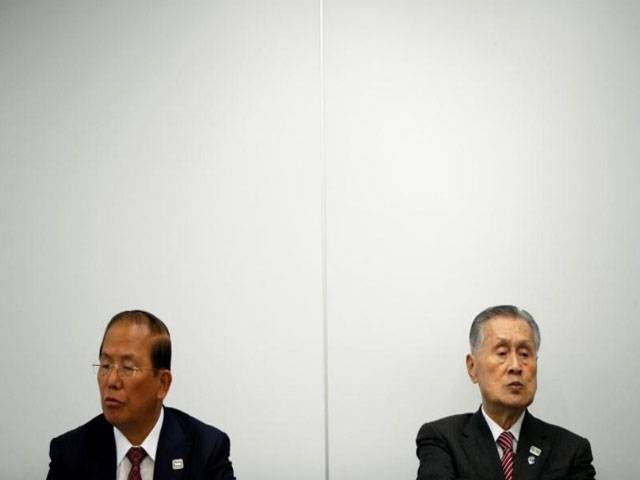TORONTO/TOKYO-Major sporting nations Australia and Canada quit the Tokyo 2020 Olympics on Monday as organisers faced global pressure to postpone the Games due to the coronavirus crisis for the first time in their 124-year modern history.
Putting back the July 24-Aug. 9 event, as is looking inevitable, would be a massive blow for host Japan which has pumped in more than $12 billion of investment in the run-up. Huge sums are also at stake for sponsors and broadcasters. But a groundswell of concern from athletes - already struggling to train as gyms, stadiums and swimming pools close around the world - appears to be tipping the balance, along with the cancellation of other major sports events.
The International Olympic Committee (IOC) and Japanese government have both edged back from weeks of blanket insistence the Games would go ahead, announcing a month-long consultation over other scenarios including postponement. The Olympics have never before been delayed, though there were cancelled altogether in 1916, 1940 and 1944 during the World Wars and major Cold War boycotts disrupted the Moscow and Los Angeles Games in 1980 and 1984 respectively. “The moment the IOC indicates that it is thinking about other solutions, it has already decided to delay the Games,” said French Olympic Committee president Denis Masseglia.
Canada and Australia both bluntly said they would not participate if the Games were not put back to 2021. “We are in the midst of a global health crisis that is far more significant than sport,” said Canada’s Olympic Committee (COC) and Paralympic Committee (CPC) in a statement. The Australian Olympic Committee (AOC) also told its athletes to prepare for a Tokyo Games in 2021. “Our athletes have been magnificent in their positive attitude to training and preparing, but the stress and uncertainty have been extremely challenging for them,” said Australia’s Olympics Chef de Mission Ian Chesterman.
Paralympic athletes were considered at particular risk from the epidemic given some had underlying health problems. Various nations urged a quick decision from the IOC, which is led by its powerful president, Thomas Bach, a German lawyer and former Olympic fencing champion. More than 14,600 people have died globally since the coronavirus outbreak began.
Athletes were broadly supportive of postponing the Games, though sad at seeing their dreams in doubt. “Competing in the Olympics is my #1 goal but I fully support this decision and I commend our leadership for taking a stand,” tweeted Canadian tennis player Gabriela Dabrowski. Only a few dissented, reigning Pan American 400 metres hurdles champion Sage Watson calling Canada’s move “premature”.
Monday’s announcements followed growing pressure from big stakeholders including U.S. Track and Field, UK Athletics and other national Olympic committees. “An Olympic Games in July this year is neither feasible nor desirable,” World Athletics chief Sebastian Coe said. “We owe it to our athletes to give them respite where we can.” Japan’s government seemed to be bowing to the inevitable despite the massive losses and logistics headaches it would face.
Prime Minister Shinzo Abe told parliament that if holding the event as planned was too difficult, “we may have no option but to consider postponing the Games, given the Olympic principle of putting the health of athletes first”. Abe has staked his legacy as Japan’s longest-serving premier on the Games and was hoping for a boom in tourism and consumer spending. At risk is more than $3 billion in domestic sponsorship.
Both Japan and the IOC have stressed that calling off the Games entirely is not an option. But finding a new date could be complicated as the summer 2021 calendar is already crowded, while 2022 will see the soccer World Cup and the Beijing Winter Olympics. Japanese sponsors, from Toyota Motor Corp to Panasonic Corp, were nervously watching. But Tokyo stocks sensitive to the success of the Olympics surged on Monday, after sharp falls in prior weeks, thanks to expectations of a delay rather than a cancellation.
Postponement is a potential major blow to the IOC’s prestige and power after its insistence the Games would go ahead. Many athletes already felt disrespected during the Russian doping scandal when Bach ensured Russians could carry on competing, albeit as neutrals. And his iron grip on the IOC could weaken after various national committees at the weekend distanced themselves from his stance over Tokyo. He is up for re-election in 2021.
PAST BOYCOTTS AND CANCELLATIONS
SUMMER OLYMPICS
YEAR HOST CITY REASON FOR CANCELLATION
1916 Berlin World War I
1940 Tokyo World War II
1944 London World War II
WINTER OLYMPICS
YEAR HOST CITY REASON FOR CANCELLATION
1940 Sapporo World War II
1944 Cortina d’Ampezzo World War II
BOYCOTTS/BANS/COUNTRIES NOT INVITED/VENUE CHANGE
* 1908: The Games were due to be hosted in Rome but were moved to London in 1906 when the eruption of the volcano Vesuvius led Italy to divert funds to the rebuilding of Naples.
* 1948 (London): Germany and Japan were not invited due to their role in World War II while the Soviet Union did not participate.
* 1956 (Melbourne): Egypt, Iraq, and Lebanon did not participate due to the Suez Crisis.
Spain, Netherlands, Switzerland and Cambodia boycotted the Games because of the Soviet Union’s participation.
China boycotted the Games as Taiwan was allowed to compete and only returned to competing in 1980.
* 1964 (Tokyo): North Korea, China and Indonesia boycotted the Games after the International Olympic Committee (IOC) refused to allow athletes who competed in the rival Games of the New Emerging Forces in Jakarta the year before.
South Africa was barred from participating during the apartheid era in 1964 and was expelled from the IOC in 1970. The country was re-admitted to the IOC in 1991 and allowed to compete at the 1992 Barcelona Games.
* 1972 (Munich): Rhodesia was banned from taking part a week before the Games when African countries threatened a boycott.
* 1976 (Innsbruck): The Winter Games were originally awarded to Denver in 1970 but it backed out two years later after public resistance and amid environmental concerns. The Austrian resort of Innsbruck stepped in instead.
* 1976 (Montreal): 29 countries, mainly African, boycotted the Games after the IOC refused to ban New Zealand, whose rugby team had toured apartheid South Africa that year.
Taiwan withdrew because Canada did not allow them to compete as the Republic of China.
* 1980 (Lake Placid): Taiwan boycotted the Winter Games after the IOC recognised the People’s Republic of China as ‘China’ and asked Taiwan to compete under the name ‘Chinese Taipei’.
* 1980 (Moscow): 66 countries, led by the United States, boycotted the Games due to the Soviet Union’s invasion of Afghanistan although some athletes participated under the Olympic flag.
* 1984 (Los Angeles): 14 countries, including the Soviet Union, East Germany and its allies boycotted the Games in response to the American-led boycott in 1980.
* 1988 (Seoul): North Korea and Cuba boycotted the Games while five others either did not respond to the invitation or were unable to send athletes due to financial constraints.
* 2018 (Pyeongchang): Russia was banned by the IOC from the Winter Games due to a state-sponsored doping scandal and their athletes were only allowed to compete under the Olympic flag.
DISRUPTIONS
* 1972 (Munich): 11 Israeli athletes were killed by Palestinians who broke into the Olympic Village and events were suspended for more than 24 hours before the Games resumed.
* 1996 (Atlanta): A pipe bomb was detonated at the Centennial Olympic Park, killing two people and injuring 111, but the Games continued as planned.







